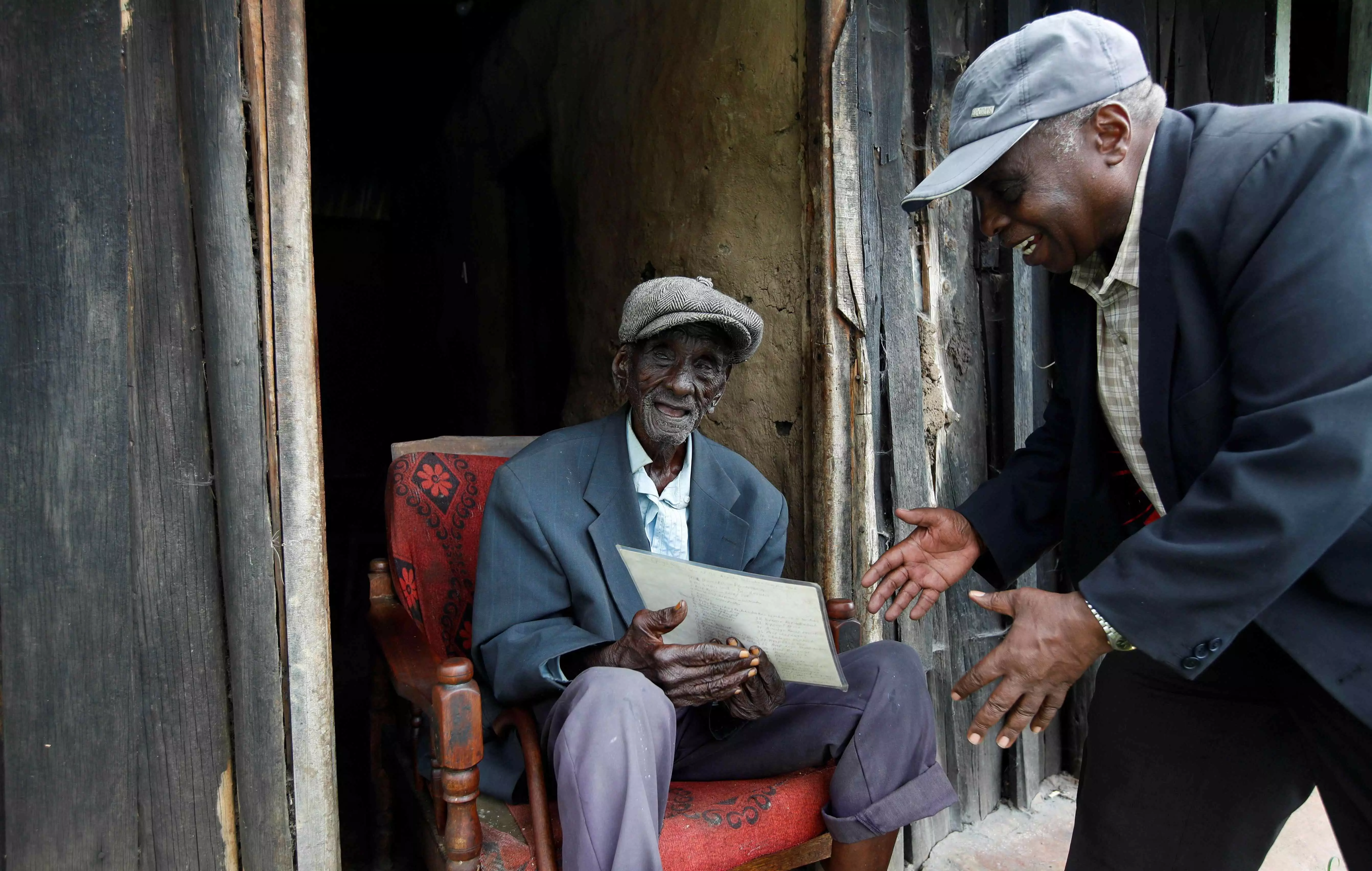- Home
- /
- Trending-News
- /
- Dispossessed Kenyans...
Dispossessed Kenyans demand compensation ahead of King Charles’ visit

Kibore Cheruiyot Ngasura, a 100-year-old Kenyan, on Monday demanded compensation for the hardship Kenyans went through during the British colonial era ahead of King Charles’s visit scheduled for Tuesday.
Ngasura said he was among a group of young men chosen to sing at an event near Lake Victoria when the then-Princess Elizabeth visited Kenya in 1952.
On Oct. 11, Buckingham Palace announced that Britain’s King Charles and his wife Camilla would travel to Kenya for a four-day state visit from Oct. 31st to Nov. 3rd.
Buckingham Palace has said King Charles’ visit would acknowledge “painful aspects of the UK and Kenya’s shared history,” where the British ruled for more than six decades before Kenya won its independence in 1963.
However, for some communities in western Kenya’s fertile highlands, the injustices caused by British colonisation were as much present-day realities as historical memories.
A U.N. report in 2021 says more than half a million Kenyans around the western town of Kericho suffered gross human rights violations, including unlawful killings and land expropriation, during British colonial rule.
The colonial administration took hundreds of square kilometres of land that communities in western Kenya had lived on for generations and handed it to British settlers.
Much of it became tea plantations that today belong to multinational companies, the U.N. report said.
“Our people, most of them, are living below the poverty level,” said Joel Kimetto, a representative of the Kipsigis ethnic group, of which the Talai are one of 196 clans.
“The majority of the vast fertile land was taken by the British, and our people were chased away to the native reserves, where it is hilly, rocky, sloppy, and unproductive,” he said.
A spokesperson for the British government’s Foreign, Commonwealth, and Development Office noted that the UK government had previously expressed regret for abuses committed during a 1952–1960 uprising in central Kenya against colonial rule.
It agreed to an out-of-court settlement in 2013 to pay almost 20 million pounds to elderly Kenyans who suffered torture and abuse during what is known by Kenyans as “the emergency” after a London court ruled the victims could sue.
“We believe the most effective way for the UK to respond to the wrongs of the past is to ensure that current and future generations learn the lessons from history and that we continue to work together to tackle today’s challenges,” the spokesperson said.
The spokesperson did not address the allegations raised by the Kipsigis and Talai, which are separate from the abuses during the emergency. Buckingham Palace did not respond to a request for comment.
However, according to a statement from the Palace, Charles will not travel to western Kenya during his visit, which will take him to the capital Nairobi and the eastern port city of Mombasa.
The UN report also says that the British government has not been receptive in the past to requests by the Kipsigis and Talai to discuss compensation.
In 2019, it informed the communities it had “no intention to enter any process” to resolve the claims.



